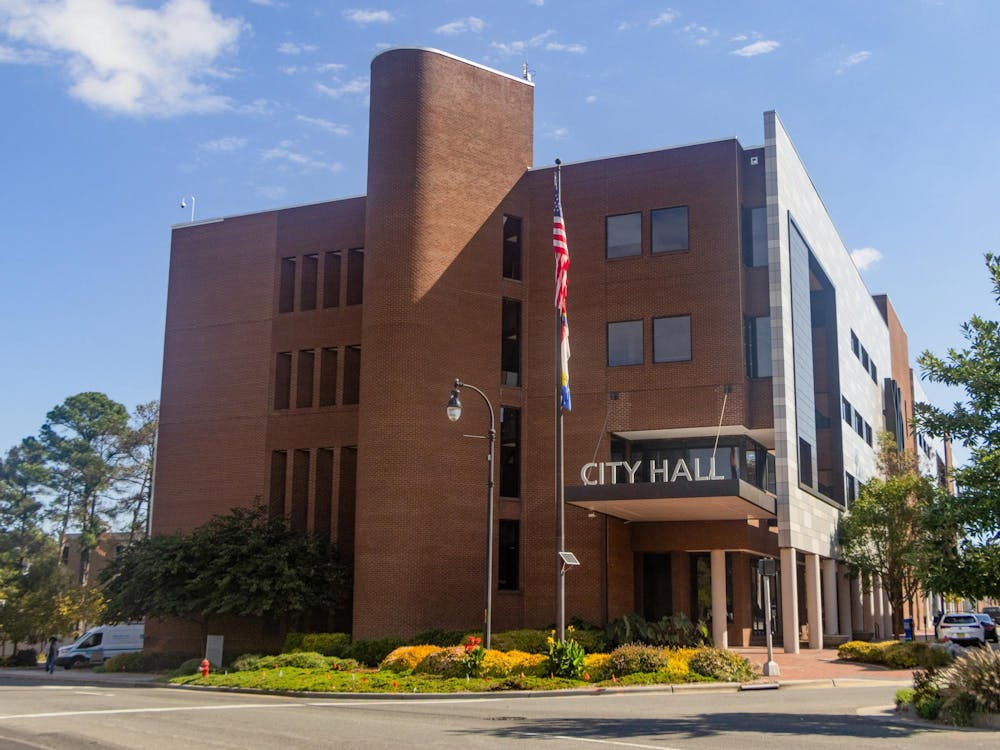Durham City Council passed four rezoning requests during its Monday meeting, two of which were approved by a narrow vote after residents raised concerns about their impact on surrounding properties.
Tensions were high within the council during portions of the debate, with members at one point accusing one another of voting against the best interest of their constituents in favor of developer priorities.
Some council members also denounced a recent WRAL investigation linking an increase in crime in portions of Wake County to Durham residents.
Rezoning requests
In a 4-3 decision, the council approved a utility extension agreement, a voluntary annexation petition and a zoning change request to allow for the development of up to 25 townhouses at 1301 Doc Nichols Rd.
Some Durham residents expressed apprehension about the proposal at the meeting, emphasizing the likely increase in traffic volume and environmental impact. They also raised concerns regarding the lack of adequate sewer infrastructure and potential for flooding.
Resident Donie Nichols described her neighbors’ struggles with drainage after recent rain.
“Another neighbor’s yard has serious drainage issues … [and] her next-door neighbor has a permanent ditch in his yard,” she said. “That will only increase with more development upstream.”
Pam Williams, a lifelong Durham resident, presented multiple environmental and infrastructural concerns and highlighted that the proposed development could lead to a 606% increase in traffic over the next three to four years.
Williams claimed the developments would lead to increased traffic of “over 11,000 vehicles per day,” despite Doc Nichols Road being “very narrow.” She further asserted that these statistics are “significantly understated” and that the actual increase in traffic volume would be greater.
In response to these concerns, Mayor Pro Tempore Mark-Anthony Middleton maintained that residents cannot expect their neighborhoods to experience no development since Durham is a “growing city.”
“To folks who are thinking about moving to Durham … and purchasing a home with the expectation that your area’s going to look the same way it looks now in perpetuity, you probably should look for somewhere else to live,” Middleton said.
Mayor Leonardo Williams echoed Middleton’s remarks, noting that “growth is painful” and acknowledging the difficulties posed by further development.
Yet, some City Council members shared residents’ concerns about the project, leading to contentious exchanges within the council.
At-Large Councilmember Nate Baker advised that Durham should instead take a holistic approach when looking at land development, which he asserted is often more useful than case-by-case evaluations. He cited the example of Davidson, N.C., which implemented a Rural Area Plan to bring all landowners in a region together and coordinate “best practices” for individual plots.
“We’re looking at some of the most unsustainable kinds of development on the planet,” Baker said, describing Durham’s typical approach. “… It’s one of Durham’s most critical environmental crises, and it’s self-inflicted.”
At-Large Councilmember Javiera Caballero disagreed with Baker’s claims, saying Davidson — home to Davidson College — is an “affluent” and “elitist college town” and thus not an apt comparison to Durham.
“We in Durham have actually made really conscientious decisions to limit our sprawl,” she said. “… I do think that we have a lot of lessons to learn in Durham, but I don’t want to lift up elitist college towns as examples of how we should be moving forward.”
Afterward, a contentious exchange took place between Middleton and Ward 1 Councilmember DeDreana Freeman over recent rezoning decisions and approval of new developments.
Freeman expressed frustration with the council for approving developments in spite of their negative environmental and traffic impacts. She pointed in particular to Nil Ghosh, an attorney with Morningstar Law Group representing the developer in the Doc Nichols Road proposal and many prior petitions, claiming Ghosh “knows he has the votes” to get rezoning applications approved.
“This has been the bane of my existence on this council,” Freeman said. “… You’re pushing for more development at the expense of certain people.”
Middleton challenged Freeman’s remarks, referring to them as “unmitigated arrogance.”
Get The Chronicle straight to your inbox
Sign up for our weekly newsletter. Cancel at any time.
“It is beneath this council to personally attack individuals who come before it,” Middleton said.
After the rezoning was approved and a short break, Williams urged City Council members to be respectful to each other.
In another 4-3 decision, the council passed a utility extension agreement, a voluntary annexation petition and a zoning change request to allow for the development of up to 20 townhouses at 6005, 6017 and 6023 Leesville Rd.
Residents raised similar environmental and infrastructural concerns to this proposal as to the previous one, but there was little debate among council members, who each voted the same way as they did in the first decision.
The council also unanimously passed two rezoning requests and an annexation petition for a stretch of Constitution Drive.
One request would allow Vivo Living to convert a hotel into residential units, with 20% of units designated for low-income residents at 60% of the Area Median Income. The other would amend a current development plan initiated by Caring House, an organization that provides affordable housing to patients at the Duke Cancer Institute and their caregivers.
In other business
At the beginning of the meeting, City Council members condemned the WRAL article which pointed to a 35% increase in crimes committed in Wake County by people from Durham County between 2019 to 2024, amid only a 15% increase in all county charges during the same time frame.
Williams raised concerns that the investigation did not include figures of crime in Durham committed by non-residents or question why the crime happened in Wake County.
“When you talk about Durham, when you talk about the Bull City, you put some respect on it,” Williams said. “Do not disrespect our community that way.”
Dylan Halper is a Trinity first-year and a staff reporter for the news department.

